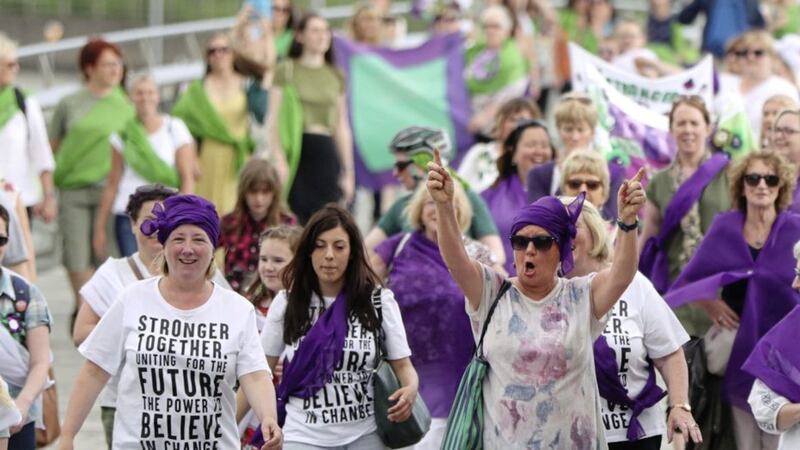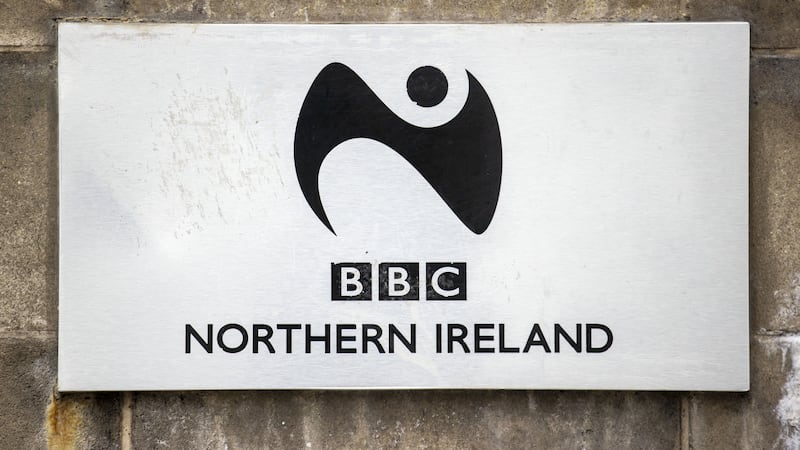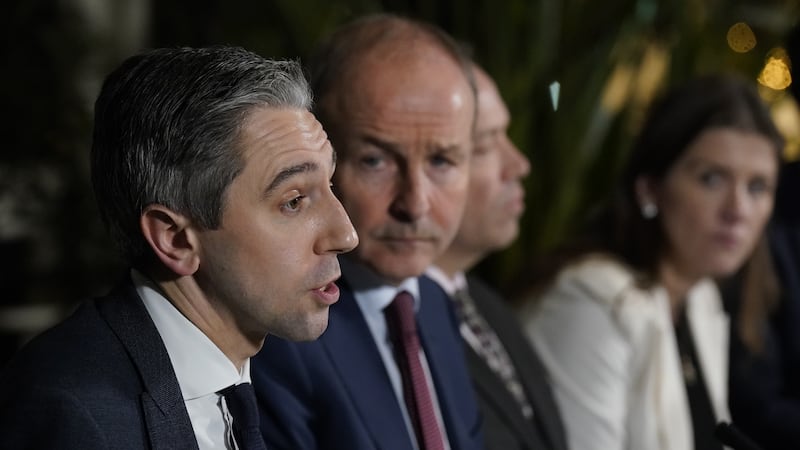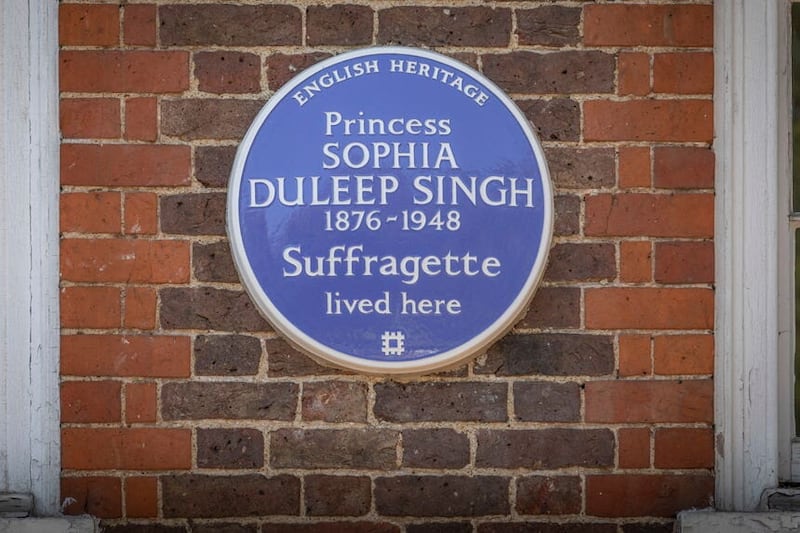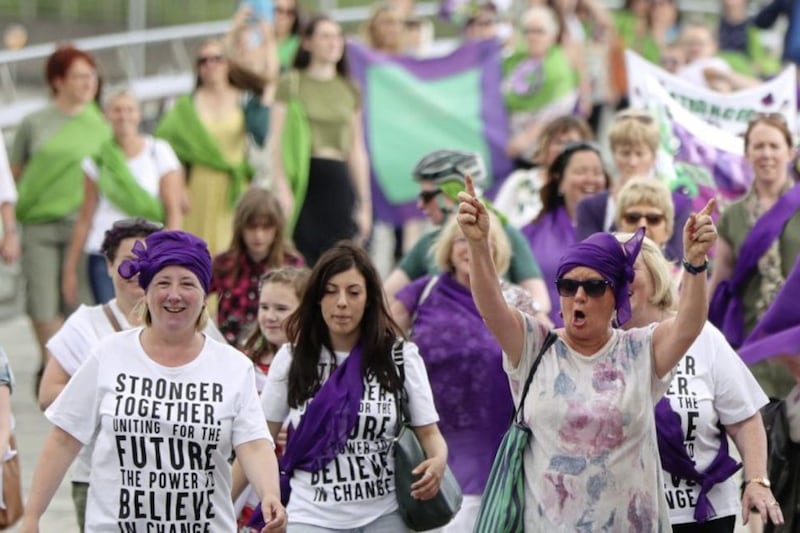THE colours associated with the suffragette movement engulfed the streets of Belfast yesterday as hundreds came together to mark the centenary of voting rights for women.
Wearing green, white and violet, all ages marched through the city as a powerful reminder of the historic moment that the first woman won the vote.
Travelling from across Ireland, many carried creative banners bearing messages about equality, while others wore period costumes as they took part in the Processions event.
The massive rally, which coincided with similar marches in London, Cardiff and Edinburgh, was coordinated by 14-18 Now - an art programme connecting people with the First World War - and Artichoke - which stages large-scale art events in public places.
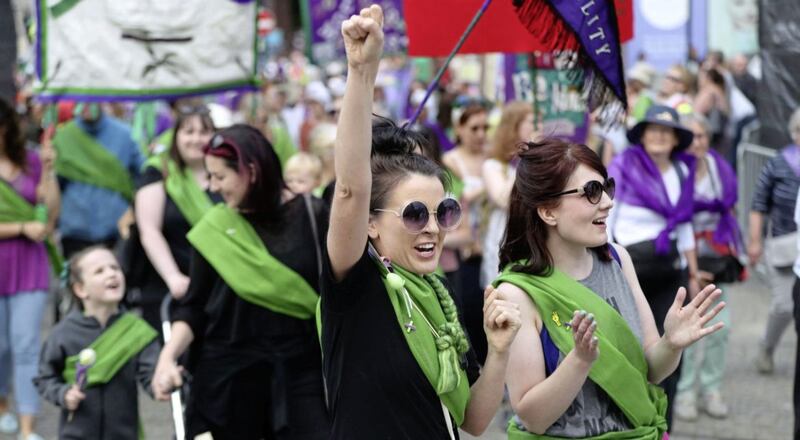
Organisers said their intention was to form "a living portrait of women in the 21st century and a visual expression of equality, strength and cultural representation".
"Processions celebrates the fight for suffrage and expresses what it means to be a woman today".
Labelled as a "mass participation artwork", the Belfast event saw participants make their way along the 1.5 mile route from Titanic Belfast to the City Hall.
They were all given a scarf to wear in one of the three suffragette colours and as they walked through the city the bands of colour appeared as a long unfurling striped suffragette banner.
Those who took part in Belfast yesterday described how they wanted to "pay homage to the women of suffrage 100 ago", while others described how they wanted to "make their voices heard now".
Many said they believed it was important to raise issues and concerns for modern day women, including reproductive rights and changes to the strict abortion laws.
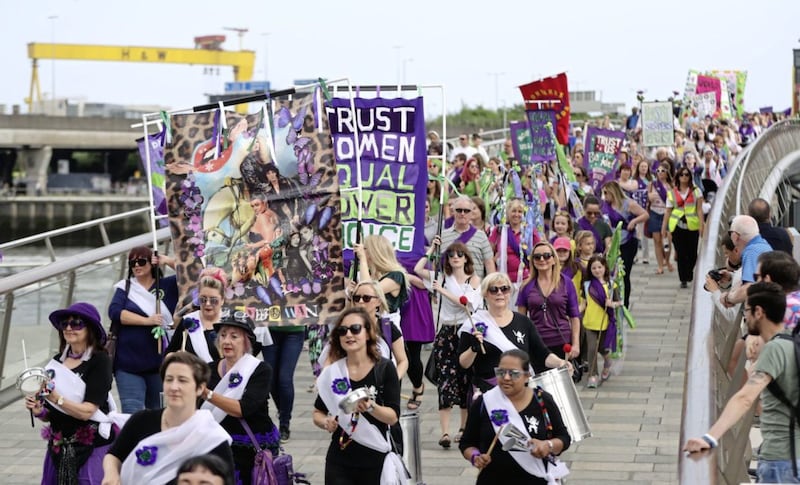
The Representation of the People Act was passed by parliament in 1918 with the legislation giving women the vote - but only women who were over 30 years old, the wives of householders, graduates or who lived in property with rents of more than £5 a year in 1918.
The vote was extended to all women over the age of 21 in 1928 - equal terms with men.
As part of the Processions project, community and women's groups across Northern Ireland worked with female artists to create handmade banners, addressing contemporary women's issues.
Reform of the abortion law in Northern Ireland was among the messages of some of the groups, including many who had travelled from Dublin, Cork and Galway to take part.
Among those participating in the Belfast rally was Derry Girls actress Saoirse Monica-Jackson.
Posting a picture with the crowds on Twitter she said: "There is no freedom without the freedom of woman. I am having the most fantastic day at Processions Belfast".
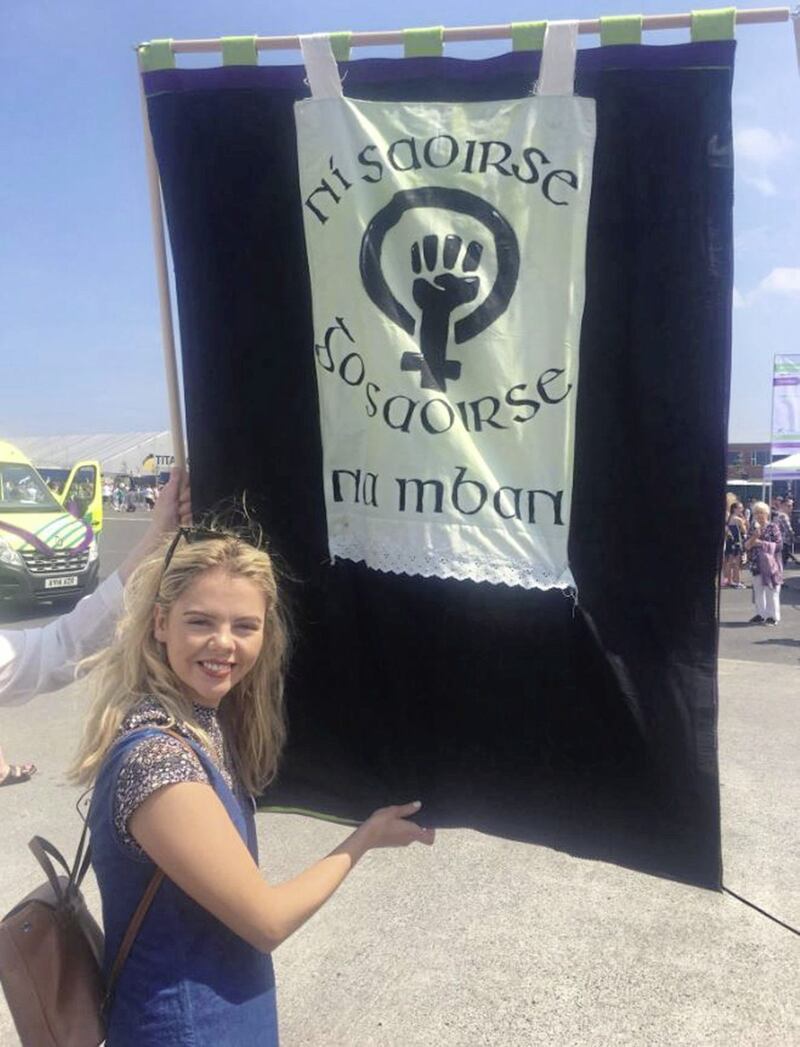
Alliance councillor Kate Nicholl also took part and said it was "a wonderful celebration of hope, art and solidarity".
She said she was "proud to participate in Processions, to mark those women who campaigned and sacrificed so much over decades to give the first women in the UK the right to vote".
"However, in paying tribute to how far we've come, it is important to reflect on the work still to be done to achieve full equality," she added.
"As a society, we need to do all we can to encourage more women into public life while tackling key issues."
